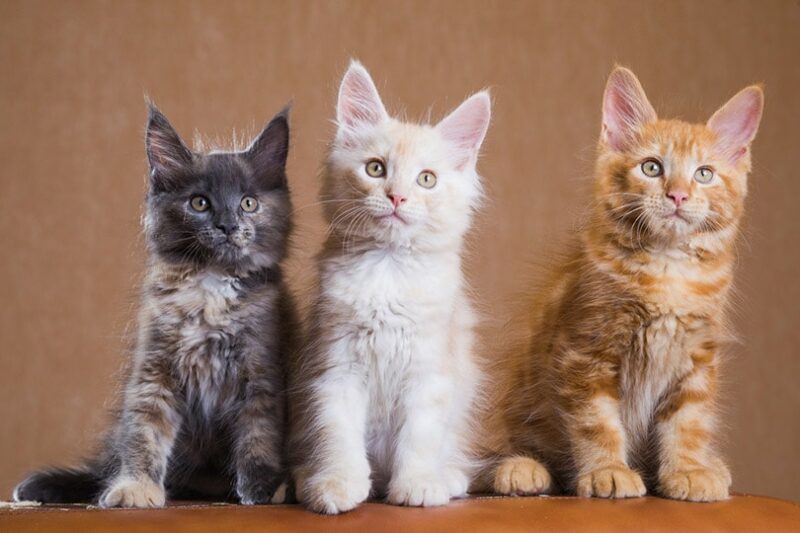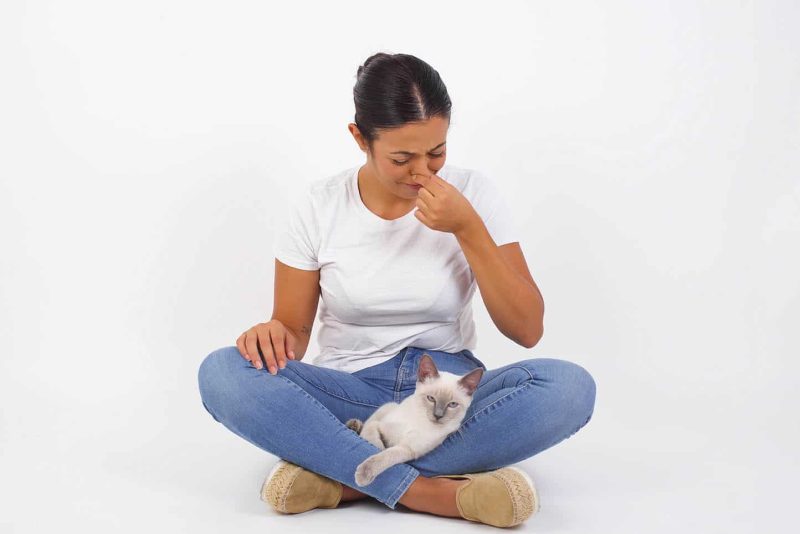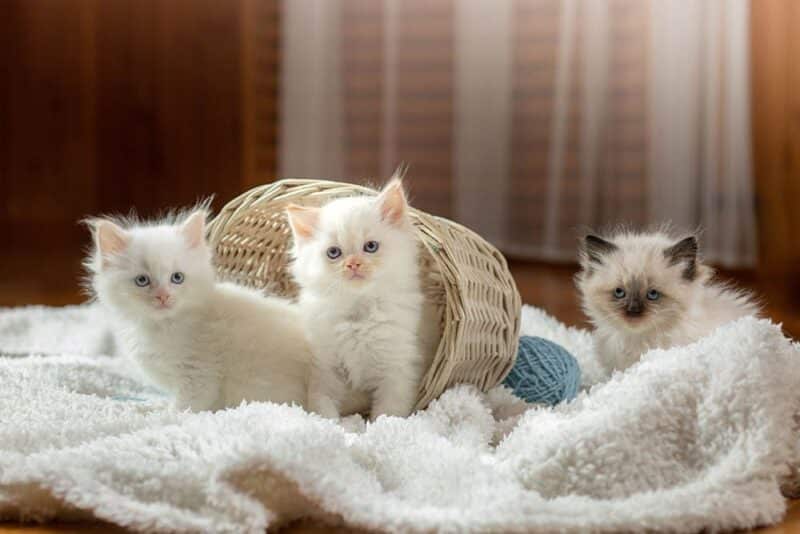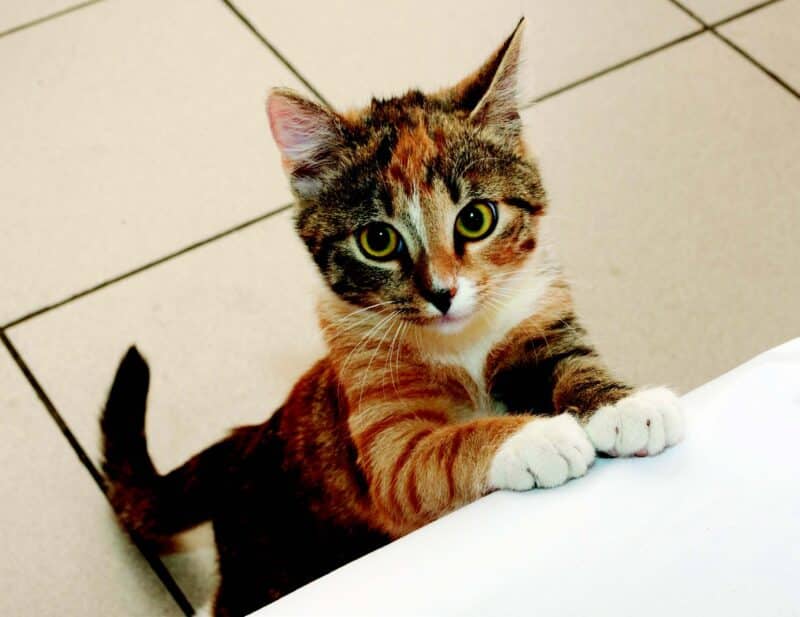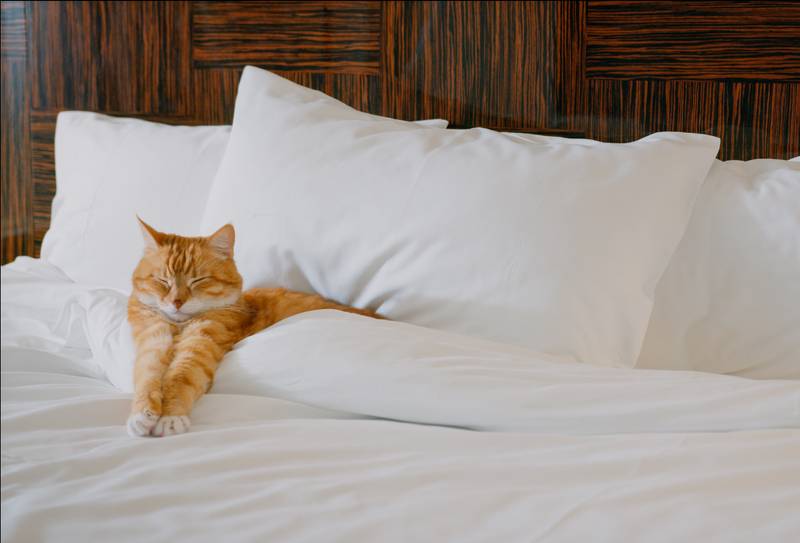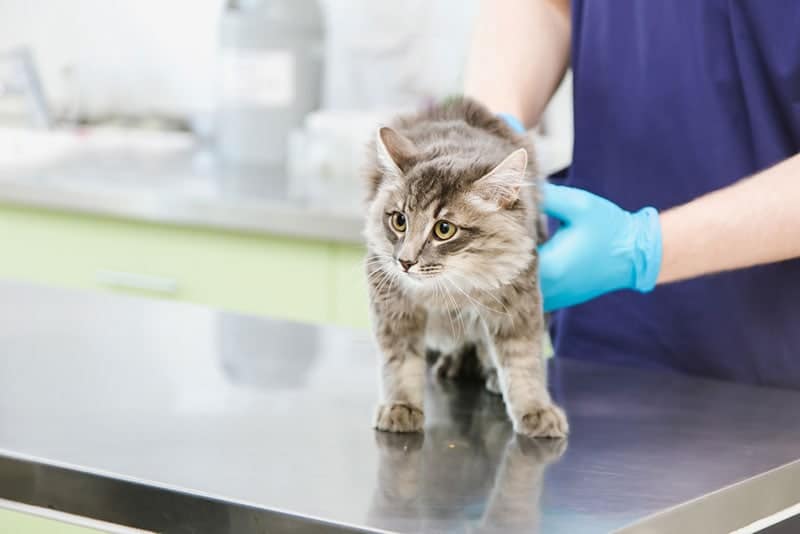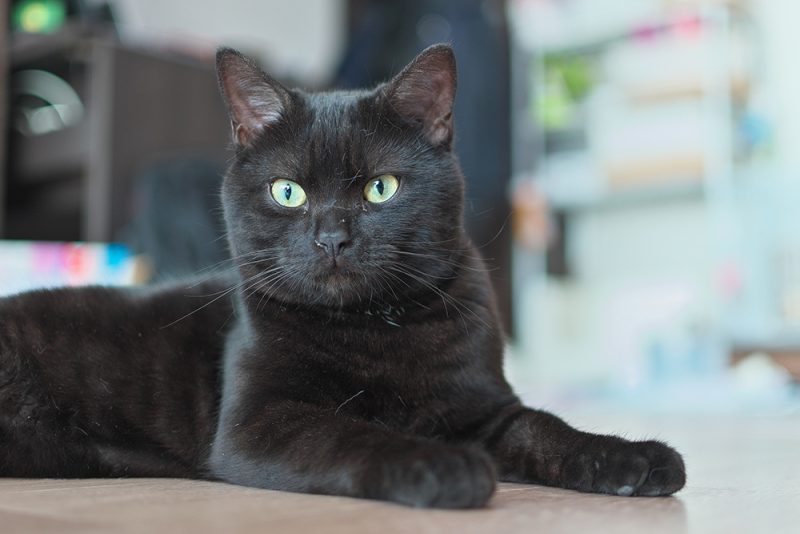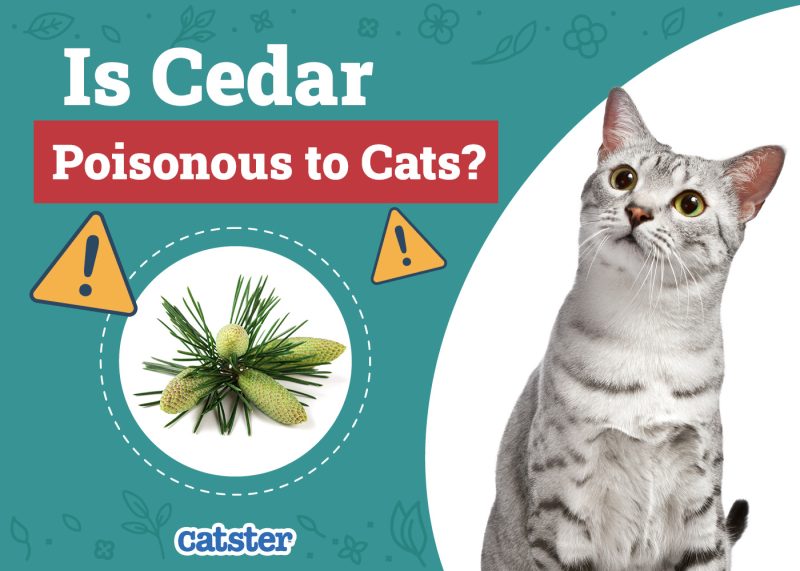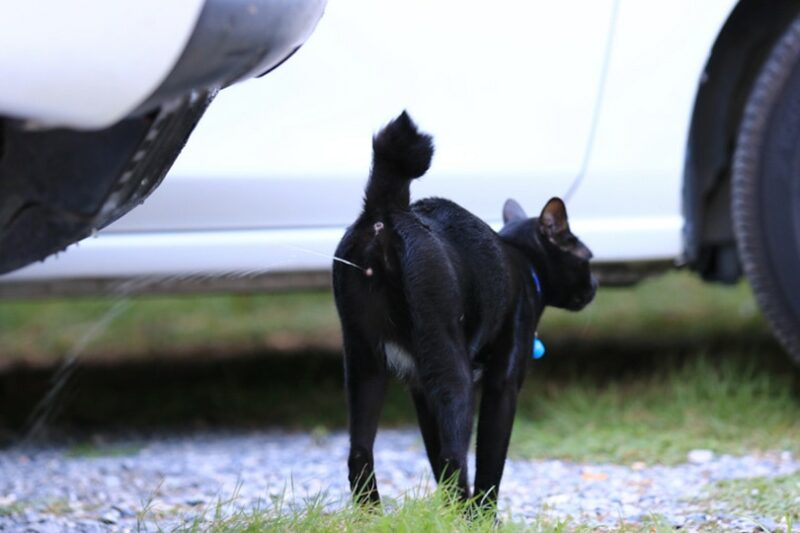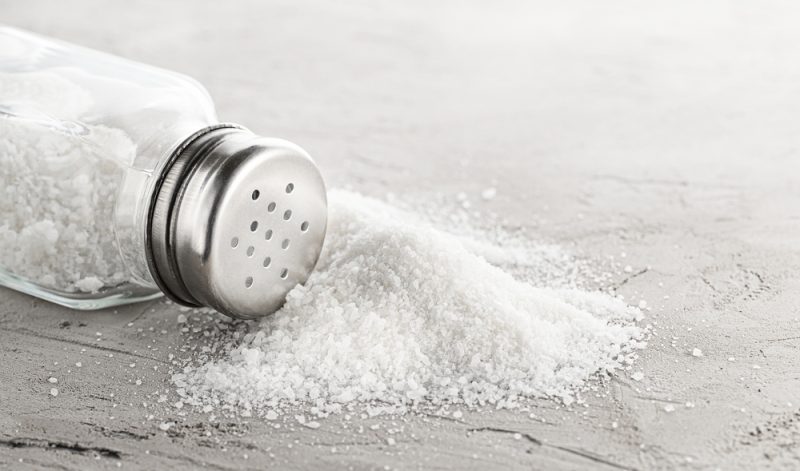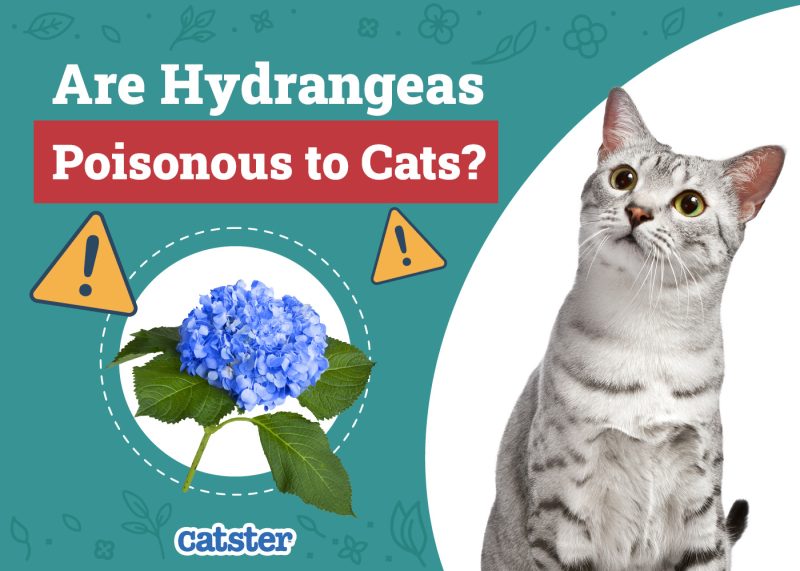If you’re a sushi lover, you’re familiar with wasabi. This garnish is related to mustard, radishes, and horseradish in the Brassicaceae family. It’s ground and made into a paste that accompanies sushi and other dishes.
Curious cats may want to try our food occasionally, and it can be tempting to let them. You may be wondering if they can eat wasabi, especially because this food has such a strong flavor. While wasabi is not thought to be toxic to cats, there are a few things you should know before you offer any to your cat.
Read on for a more detailed look at wasabi, what it is, and how it affects cats if they eat some of it.

What Is Wasabi?
If you notice a mound of light green paste sitting next to your sushi, that’s wasabi. It’s a spicy accompaniment to dishes that stimulates the nose more than the tongue. Instead of capsaicin, the famous heat source in spicy peppers, wasabi contains constituents that become allyl isothiocyanate when you grate it. It triggers the scent receptors in our nasal passages.
Wasabi is pungent and used to bring out the flavors of the dish to which it is added. True wasabi is made from the Wasabia japonica (Japanese horseradish) plant. This plant grows naturally in riverbeds in Japan, but it is notoriously difficult to grow in the United States and Canada. To purchase this plant wholesale, it can cost up to $160 per kilogram (approximately 2.2 pounds). It is estimated that only 5% of wasabi in Japanese restaurants worldwide is from the wasabi plant. The price and most countries’ inability to easily cultivate the crop make using imitation wasabi much more efficient.
This is important to know because imitation wasabi is likely what is on your sushi platter. The ingredients in it may cause health issues in cats.
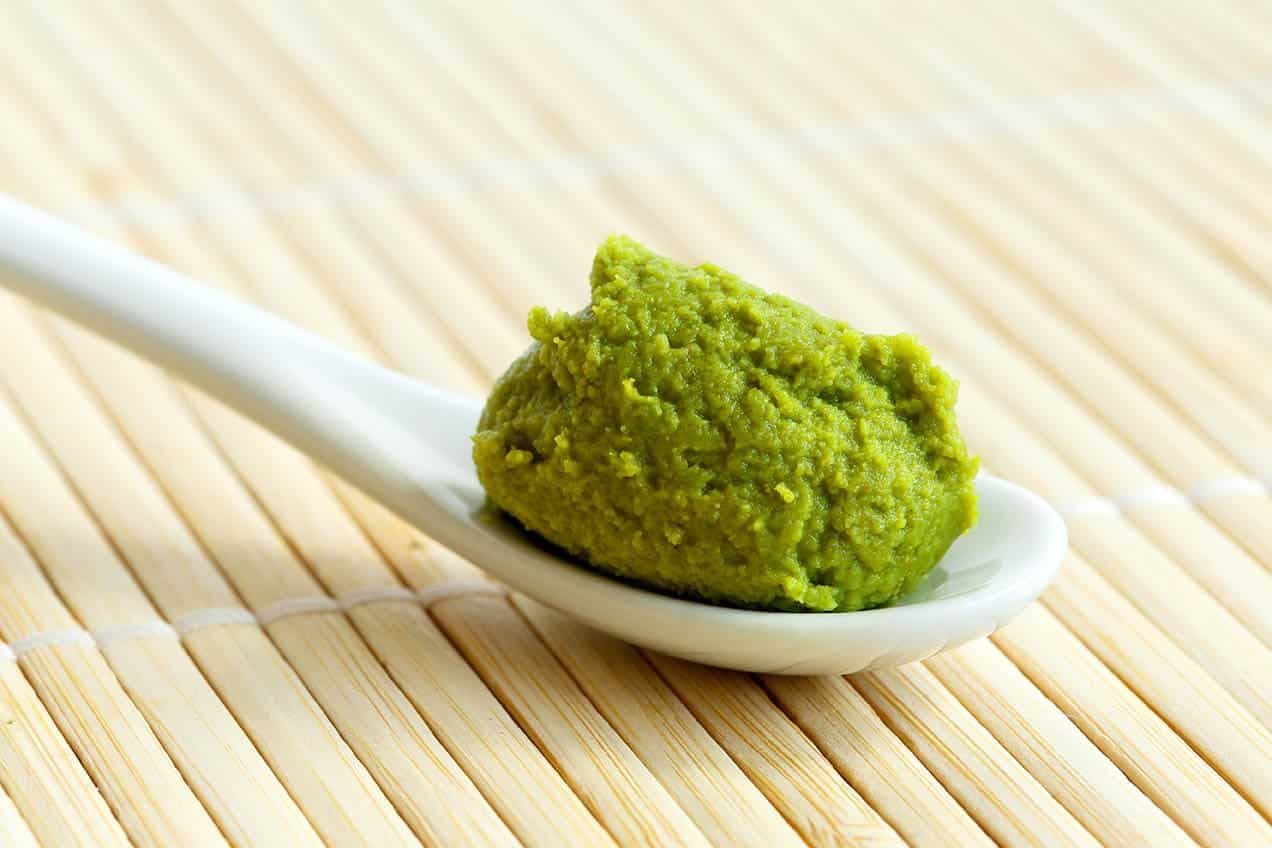
What Is Imitation Wasabi?
Imitation wasabi is made from a mix of horseradish, mustard powder, food coloring, and a thickening agent like cornstarch or flour. It has a smooth texture, unlike authentic wasabi, which is grainy and gritty. Real wasabi is served freshly grated and not puréed.
Cats and Real vs. Imitation Wasabi
Real wasabi is not reported to be harmful to cats but we could find no research into this. Most cats will not like the taste of it, though, so they won’t seek it out. If your cat does like wasabi, it won’t likely cause any harm, but it won’t do anything beneficial either.
Cats are obligate carnivores and require animal protein in their diet. While other ingredients in their food may provide flavor and nutrients, cats are made to digest, process, and get their primary nutrients from meat. Anything outside of their regular food will just fill them with empty calories. Occasional treats, such as something from your plate that you’re certain are acceptable for cats to eat, are fine. But your cat won’t be gaining great nutritional value from things that their body wasn’t meant to have.
Imitation Wasabi
Imitation wasabi is where potential issues can lie. Horseradish (Armoracia rusticana) is the main ingredient used to make this product. While the ASPCA does not list horseradish on its list of toxic plants for cats, it doesn’t list it on the non-toxic list either. It is believed by some experts that horseradish is perfectly safe for cats. Others believe that the plant is poisonous to them as it contains sinigrin which when hydrolysed can become a potent eye and skin irritant. This is a debated subject, but we like to err on the side of caution. If something is believed to potentially harm cats, we don’t advise feeding it to them.
Mustard powder is another ingredient often found in imitation wasabi, and this should not be fed to your cat. Mustard powder is made from ground mustard seeds. These can cause severe gastroenteritis in cats. Symptoms of this include:
- Vomiting
- Diarrhea
- Dry heaving
- Lethargy
- Decrease appetite
This is a potentially dangerous condition for your cat, especially if they become seriously dehydrated. Some ingestions can be treated as an outpatient with medications and fluids at the vet. Others may require hospitalization. To avoid this issue, don’t offer your cat wasabi that you get from your local grocery store.
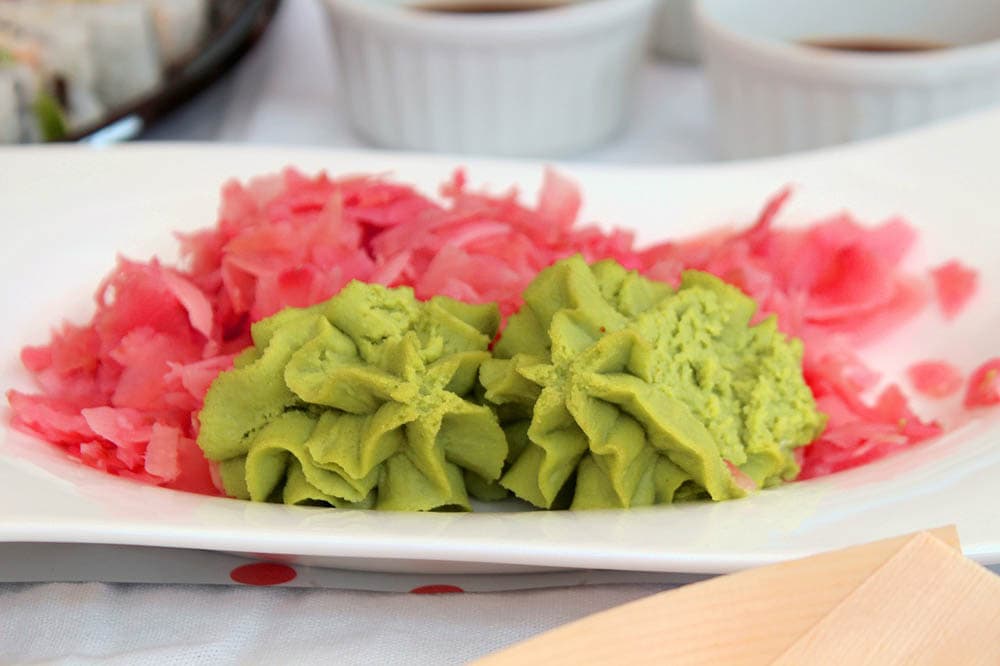
How Much Wasabi Can My Cat Have?
We do not recommend purposefully feeding your cat wasabi. If they do get hold of some from your plate or the trash then it would be unusual for them to eat a lot. If you know that your wasabi is authentic, then there should be little cause for concern. If it is imitation wasabi, then you will need to monitor for signs of digestive upset and seek treatment.
If you have a cat that seems to seek it out and that they do like it, try to limit their access and offer a more suitable treat instead. It provides nothing that they need in their diet, so they won’t miss it. Instead, you can offer pieces of cooked, unseasoned chicken breast or fish to keep them satisfied.

Can My Cat Eat My Sushi Instead?
Many cats like fish, so it might make sense to offer them a piece of your sushi instead of giving them imitation wasabi. However, raw fish can cause illnesses in cats. Not only does it contain bacteria that can poison your cat, but it also contains enzymes that destroy thiamine.
Thiamine is a B1 vitamin that is vital to your cat’s health. If your cat is lacking thiamine, it can lead to brain and eye problems, convulsions, coma, and death. If you’re going to feed your cat a piece of fish, make sure that it is cooked, unseasoned, boneless, and safe for them to eat.

Can Cats Eat Soy Sauce?
Soy sauce has high sodium content. Cats should not consume it because they don’t require much salt in their diets, and eating too much of it can cause health problems. If they eat enough soy sauce, it can cause salt poisoning.
Salt poisoning signs include:
- Vomiting
- Diarrhea
- Decreased appetite
- Excessive thirst or urination
- Lethargy
- Dizziness
- Tremors
- Seizures
- Incoordination
- Coma
If you catch your cat licking the last bit of soy sauce from your plate, watch them carefully to make sure these symptoms don’t appear. If you notice any of them, contact your veterinarian.
If you need to speak with a vet but can't get to one, head over to PangoVet. It's an online service where you can talk to a vet online and get the advice you need for your pet — all at an affordable price!


Final Thoughts
Cats should not be fed anything from your sushi platter, including raw fish, wasabi, and soy sauce. It’s best to not offer your cat these foods because it offers nothing of nutritional value to your cat and may be harmful.
While authentic wasabi is not likely to make them ill, there are healthier and tastier treats that your cat could be enjoying instead. Wasabi may be popular among humans, but our feline friends might not be so eager to taste it. If you do have a cat that is curious enough to take a bite, make sure the wasabi is authentic. Imitation wasabi can cause health problems in cats.
Featured Image Credit: sasazawa, Shutterstock



